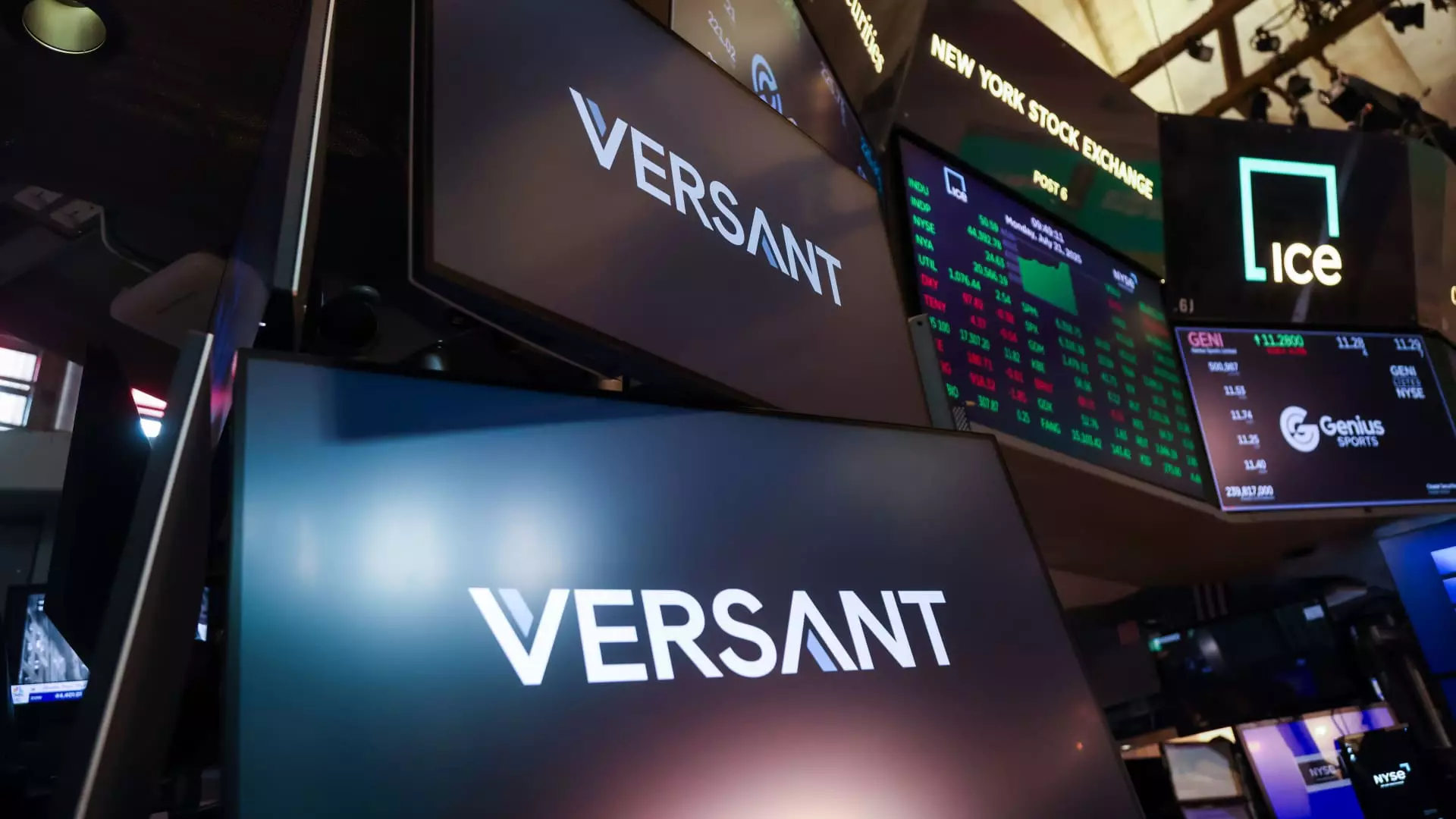The announcement of Versant’s prospective board marks not just a corporate reshuffle but signals a pivotal moment in the ongoing consolidation of media power. Led by industry veterans and influential figures from various sectors, this new entity aims to carve out a substantial independent footprint in the fiercely competitive landscape of entertainment and technology. However, beneath the veneer of strategic independence lies a troubling trend: the erosion of genuine diversity in media ownership and the potential for increased corporate control over the narratives that shape public opinion. As Comcast spins off its cable networks into Versant, there’s a clear indication of the industry’s prioritization of shareholder value over community interests or democratic transparency.
While the roster boasts impressive credentials—former Disney executives, seasoned finance professionals, and innovators in AI—one must scrutinize whether they genuinely represent the diversity of thought and societal perspectives or predominantly mirror the existing hegemony of corporate elitism. The move to establish Versant as an independent power broker could serve to not only optimize profits but also subtly influence what information reaches audiences, thereby consolidating an already influential sector under a new umbrella. This transition signifies more than a corporate restructuring; it highlights the strategic shifts aimed at perpetuating a media landscape increasingly governed by a handful of conglomerates with outsized influence rather than pluralistic voices.
The Illusion of Independence: Corporate Elites in the Driver’s Seat
While the narrative promotes Versant as a new, independent media powerhouse, it is crucial to recognize the underlying corporate interests at play. The so-called independence of Versant is, at best, superficial. The ownership and leadership come from grips with the same systemic priorities—profit maximization, global influence, and maintaining societal norms that favor corporate interests. The assembled board, predominantly drawn from high finance, law, and legacy media institutions, raises questions about whether Versant can truly serve the public good or is merely a strategic maneuver to extend corporate dominance.
Figures like David Novak and Rebecca Campbell symbolize a continuity of corporate leadership rather than revolutionary change. Their backgrounds, deeply rooted in branding, content, and global enterprise, suggest a focus on monetizing cultural assets rather than democratizing access to information. In this context, the narrative of “independence” rings hollow. Instead, it’s a rebranding effort that shields the core issue: the relentless march of corporate monopolization over media channels, marginalizing smaller voices and independent creators. The risk is not just the concentration of ownership but also the systematic narrowing of viewpoints available to the average consumer, effectively reducing media diversity to a curated, corporate-approved subset.
Implications for Democratic Discourse and Cultural Pluralism
The move towards creating Versant as an independent parent company is emblematic of a larger societal shift where power is increasingly centralized in the hands of corporate elites. This trend has profound implications for democratic discourse. When media conglomerates control the flow of information, they wield disproportionate influence over cultural norms, political debates, and societal values. The unchecked proliferation of corporate interests while cloaking their motives behind the idea of independence risks marginalizing critical, marginalized voices and snippets of alternative narratives that are vital for a healthy democracy.
Furthermore, the consolidation of media properties into Versant’s portfolio raises questions about cultural pluralism. With entities like NBCUniversal’s cable networks, Fandango, Rotten Tomatoes, and Golf Channel all under a single umbrella, viewers are presented with a homogenized cultural landscape. The diversity of perspectives—necessary for fostering critical thinking—diminishes as consumer choices become increasingly shaped by corporate algorithms and streaming algorithms calibrated to maximize revenue rather than societal enrichment or educational value. This dynamic raises concerns about who ultimately controls public discourse in an era where media corporations are better equipped than ever before to shape societal narratives.
The Center-Left Perspective: A Critical Yet Hopeful View
From a center-wing liberal perspective, the creation of Versant is both a cause for concern and an opportunity. It underscores the necessity for ongoing vigilance and advocacy for media policies that prioritize democratic access, transparency, and the diversification of content creators. While the strategic actors assembled for Versant’s leadership are undoubtedly talented, their backgrounds suggest a prevailing focus on maintaining and expanding corporate influence, not dismantling it.
However, the recognition of this pattern also opens avenues for civic engagement, advocating for stronger regulations on media ownership, promoting independent media initiatives, and supporting policies that ensure a plurality of voices. The potential of Versant to become a truly different kind of media company depends on societal pressure to push beyond profit-driven models and foster a media ecosystem that genuinely serves democratic goals. As such, this development could be a catalyst for reform rather than mere corporate consolidation—if citizens and policymakers remain vigilant and committed to media pluralism.
In this precarious moment, empowering diverse, community-based, and independent creators becomes an act of safeguarding the future of an open society. The battle for media independence is far from over, and the rise of conglomerates like Versant only underscores the urgent need for a new social contract around information, culture, and power.

